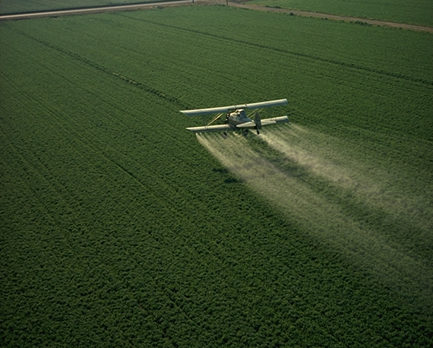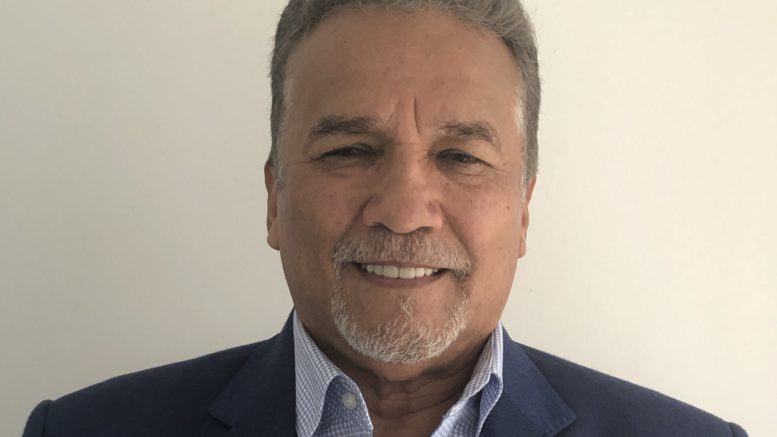“… challenges are the weather, exchange rate, credit, logistics and commodity prices …”
Factors such as the impacts of extreme weather events, exchange rate fluctuations, or the growing demand for products with low environmental and toxicological impacts are issues that affect the pesticide market in Brazil.
Agribrasilis interviewed Cesar Emiliano Rojas Ruiz, president of Albaugh Brasil, about pesticide market and prospects.
Rojas is an agronomist (Universidad Nacional Pedro Ruíz Gallo), with 30 years of experience, including the Brazil crop protection market, where have worked for 16 years.
AgriBrasilis – What are the prospects for Brazilian agribusiness?
Cesar Rojas – We are optimistic. Despite the climatic challenges faced in the 2020-21 season, especially corn, we believe that the 2021-22 cycle will be robust in relation to the resumption of yield. There are medium and long-term projections favorable to agricultural commodities from Brazil.
The scenario is exciting for us. We are increasing our portfolio and presence in the field to meet the needs of our customers.
Apart from these two factors, the market as a whole also faced the exchange rate variation issue: the rise of dollar exchange rate forces companies to find protective mechanisms both in order to avoid the transfer of prices as much as possible, that is not always possible, but also to ensure the balance between supply and demand for specific products.
In case of Albaugh, the company has a state-of-the-art logistical structure, and produces most of its products in its manufacturing complex, in Resende, Rio de Janeiro State. These make the company competitive in delivering a more favorable cost-benefit ratio to the farmers, through a portfolio of strategic solutions for the most important crops.
AgriBrasilis – What is the trend in the crop protection market in the 2021/2022 harvest?
Cesar Rojas – It will be a challenging crop for the sector, given the aforementioned.
Effective distribution will be key in the 2021-22 season. We understand that the strength of Brazilian agribusiness will lead the pesticide sector to count on a positive performance in yet another harvest. However, to make proper projections, it will be necessary to wait to see how the climate will behave, for example, in addition to the exchange rate and the prices of agricultural commodities.
In the first half, an increase of 24% over the previous year is already being reflected, which shows a year of growth. Our investment plan in the country will remain unchanged with a view to the 2021-22 harvest, that is, we aim to expand the offer of solutions and grow continuously, as has been the case since we started operations four years ago.
In this way, we believe that Albaugh will follow its path of advancement. We expect to launch and deliver new solutions to farmers of soybean, sugar cane, corn and other grains, citrus, coffee and vegetables in general. Here, we built a structure to support the field that has specific regions, such as the coffee region and the sugarcane region, that improve the acquisition and delivery operations of our line of technologies.
The good relationship with the distribution channel has also influenced the good results.
AgriBrasilis – The market is undergoing a series of transformations, including the consolidation of pesticide dealers. What are the benefits for the farmer?
Cesar Rojas –We understand that the consolidation in the distribution chain follows a trend observed in other agribusiness segments and also in other countries. We see it as a positive move, that may benefit the farmer in relation to credit offer, for example. The protagonists of this consolidation are investor groups and solid investment funds that may influence new business models and access to capital by the production chain.
AgriBrasilis – What are the challenges in the Brazilian market?
Cesar Rojas – Biggest challenges are the weather, exchange rate, producer credit, logistics and commodity prices. Effective management linked to these variables makes crop protection companies competitive.
 AgriBrasilis – What technological and product innovations will Albaugh offer the market in the short and medium term?
AgriBrasilis – What technological and product innovations will Albaugh offer the market in the short and medium term?
Cesar Rojas – The company expects to launch at least twenty new products by 2025. Our portfolio is growing rapidly and, today, we can offer one of the broadest portfolios in the industry. This year, for example, we launched a high concentrated glyphosate potassium that delivers superior agronomic performance and a favorable cost-benefit to the farmer. We have also recently expanded the range of herbicides for sugarcane and soybean. Today we have the multi-site protector that delivers the most favorable cost-benefit ratio in controlling soybean rust and end-of-cycle diseases.
The goal is to continuously expand the offer of high-quality post-patent products to the farmer. We have several products under registration and as we receive the approval, it will be launched in the market immediately. We will have innovations mainly in soybean, corn, grains in general, sugarcane, coffee, citrus and vegetables.
AgriBrasilis – What is your view on “agriculture and sustainability”?
Cesar Rojas – It is an irreversible process going forward. It is no longer a trend, but a reality. One thing no longer exists without the other. Market demands social and environmental sustainability that will lead companies to innovate more and more and keep agriculture in constant evolution.
In this context, Albaugh makes several investments to produce and deliver products that meet sustainability requirements. We are affiliated to InpEV and Campo Limpo (Clean Field), which are global references for sustainability, as they manage to remove 100% of used packages from the field. Even so, we will continue to invest in high concentration and low toxicity formulations that we develop in our laboratories.

